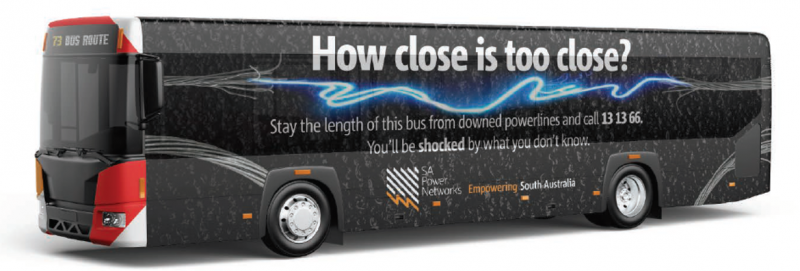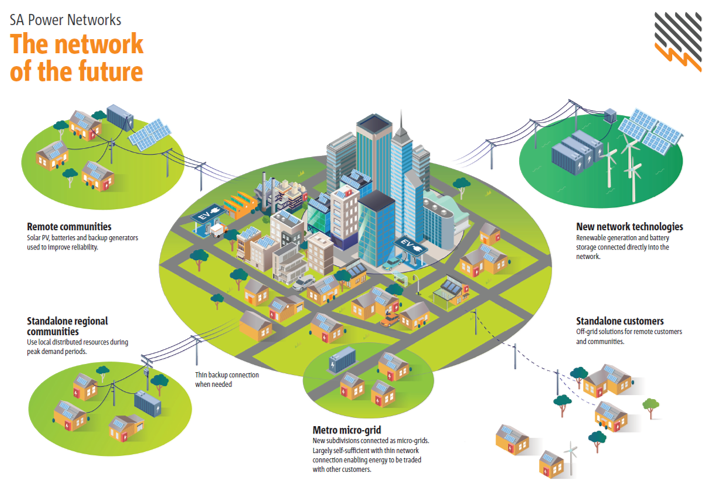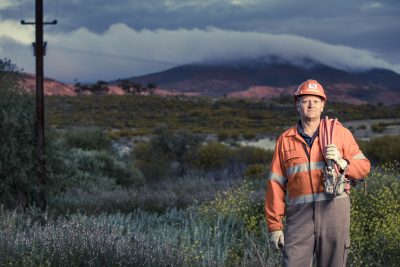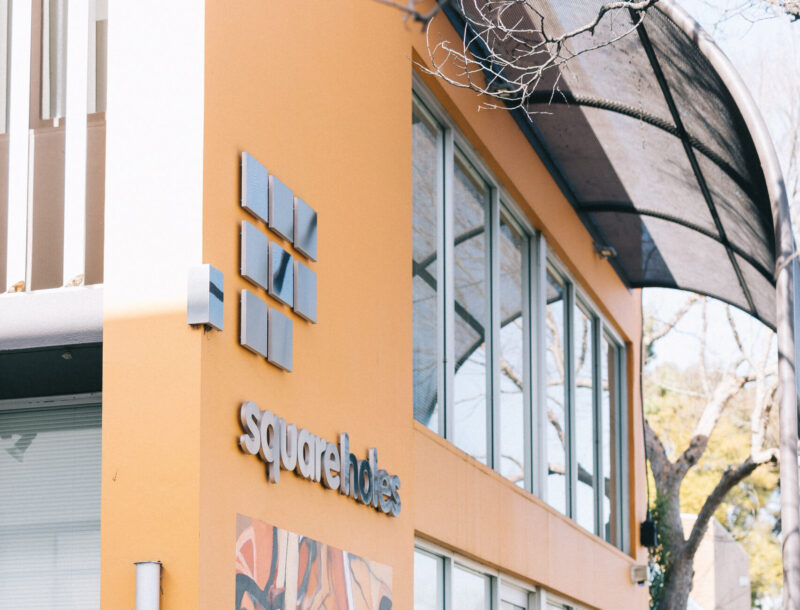SA Power Networks (SAPN) Manager Corporate Affairs Paul Roberts says the organisation is focused on understanding the wants and needs of the people they serve.
“The industry has been a bit guilty sometimes of doing things, certainly in the past, because it cares, but not necessarily seeking a lot of customer input,” Paul says.
“That’s really changed in the last five to ten years and our engagement with our customers and stakeholders has improved dramatically.”
That approach has been reflected most recently in a new community safety campaign launched in 2020, which has been strongly driven by customer research.
The campaign, ‘You’ll be shocked by what you don’t know’, first rolled out in October 2020.

Paul says the campaign aims to ensure the community knows what to do when around downed power lines, feeling tingles in taps to vehicle accidents involving stobie poles, and electrical safety on farms.
“The research we did with Square Holes in early 2020 showed that we needed to give some very clear advice around the key hazards involving electricity infrastructure,” Paul says.
“I think we have addressed them in a very single-minded campaign.”
The research conducted by Square Holes found many people assume electrical safety is ‘common sense,’ but don’t actually know what to do in specific circumstances, and there is a great deal of confusion and conflicting views that prompted the new campaign.
For example, 54 per-cent of participants were unaware of the correct practice in a vehicle crash with a stobie pole – a research outcome used to create consumer-targeted advertisements.
‘You’ll be shocked by what you don’t know’ created by ad agency Nation
“The research showed that while people thought they could use their common sense there was a big gap between what they thought they should do and what would keep them truly safe.” Paul Roberts – read press release >
Square Holes conducted early research to identify the community gap in understanding, testing of the creative concepts pre-launch and is currently tracking the impact of the campaign on attitudes and behaviours. Jason Dunstone from Square Holes says the earlier research highlights that many in our community take electrical safety for granted when they are actually confused by it.
“A critical insight from across our research is that human nature is to take things for granted, and it is very hard to change attitudes and behaviours,” Jason says.
“In the context of the work we have done with SAPN since 2017, this manifests in the community being nervous and slow to adopt possibilities of a new network and taking unnecessary risks with electrical safety.
“For SAPN it is about engaging the community and helping to drive change, be this supporting the adoption of a future network or improved electrical awareness safety.”
SAPN is also driving a behaviour change as it welcomes the decarbonisation of energy and a customer-focused transition into the future of power.
Since 2010 280,000 South Australian homes turned to solar power.
This shift means significant change in management of the network, and Paul says SAPN are welcoming the changing power landscape and believe they have a central role in the State’s energy transition.
“It’s fascinating, our network was built in the 1950s and 60s, and in South Australia it was built to be as cost efficient as possible,” Paul says.
“It’s always (before recent years) been a one-way network and if you think about 60 years of stability, the industry wasn’t required to be particularly innovative.
“In 2010 you’re seeing the first solar panels being connected to the network and the customer investment in solar has really changed the whole way in which people generate and use power.”
As more South Australians move to tap into renewable rooftop power, the development of SAPN’s network of the future looks at how customers need more services beyond electricity supply.
“Solar really brings a challenge for us in its influence on demand; without some very clever systems, it could be a very real challenge to maintain stability at state and national grid levels,” Paul says.
“There’s a lot of innovation going on in the industry, in terms of equipment manufacturing, and that’s incredible.”

Through partnerships with Tesla, CSIRO and ARENA, SAPN was able to conduct a Grid Integration Trial to understand the network capacity of Virtual Power Plants (VVP) and how they relate to the rapidly-changing power industry.
The multi-award-winning trial works as a blueprint for integrating energy generated by customers on the national grid, managing network efficiency and allowing clients with solar panels to have flexible export limits.
SAPN is also thinking about the future, including the rise of electric vehicles.
“We’re really excited about not only our role in the decarbonisation of energy,” Paul says.
“The decarbonisation of transport, will bring much benefit from a health point of view and environment point of view for the community, and will actually increase the efficiency of the network by increasing its current level by about 50% utilisation.”

For SAPN, how the company adapts its behaviour to the ever-changing power industry and its model for customer interaction is core for its growth.
Although distributed energy resources such as rooftop solar are changing the network’s traditional way of working, the company is ensuring customers are a priority.
When considering the need for businesses to be more able to embrace change and be customer-centred, Paul believes a connection with the customer extends further than just the electrical one SAPN provides.
“We’re right in every street, we connect into every house,” Paul says.
“We have to make sure we have a very strong connection with every South Australian, whether they have a home or a business as a connection from us, it’s important we know what we can do for them to make their lives better.”



